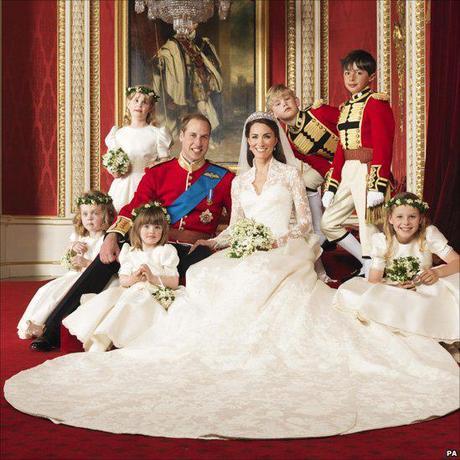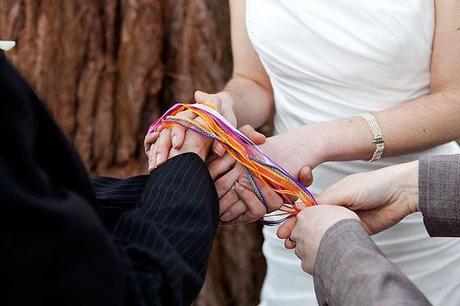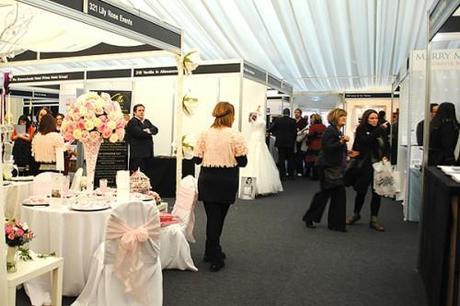1. The wedding industry is a circus made of your money
Top of my list for a reason — the wedding industry is a great big merry old roundabout made of fifty pound notes held together with gold dust and dreams. Average wedding budgets, pressure to spend, worries about money… why should being in love cost so much?
It’s as if an engagement ring flicks a switch in our minds, and suddenly we’re cajoled into throwing caution and half our brain cells aside to spend thousands of pounds on a party. We’re encouraged to spend an insane amount of that on a dress, food and drink, and hiring an aristocrat’s house for a few hours. Fine if it’s what you’ve always dreamed of. But if you’ve been in love for a while and haven’t thought about weddings, suddenly being thrown into the world of weddings can be quite an experience.

We’re pressured to spend, spend, spend. Wedding magazines have pages and pages of adverts and ideas-with-prices-on. Even wedding blogs full of wedding ideas can be taken the wrong way: I always try and write English Wedding blogs as ideas — without any pressure to get / spend / buy. But when you see the wedding press and TV it’s easy to see why brides and grooms think they need to spend to have a ‘proper’ wedding.
It makes me sad that couples who can’t afford a wedding like this feel they have to live up to the industry’s own standards.
Fix it!
Only spend what you can afford, not what your venue / friends / suppliers think you can afford. Don’t get into debt. Keep track of your finances and focus your spend on what’s important to the two of you. Decide your wedding priorities and make your wedding a personal celebration of your love.
And whenever you pick up a wedding magazine, remember it’s a business — wedding publications, press and events are all designed to make you spend money!
2. The boredom factor
Just ask your guy about this one. Weddings have the potential to be pretty samey — much as we try to set ours apart by being just a little bit bigger, better, quirkier. The expectations we have for weddings: that the venue will be decorated, that you’ll wear an expensive dress, that there’ll be a nice meal for everyone — are limiting. These are nice things to have — but there’s nothing wrong with a wedding that doesn’t have all of this, is there?
And wedding planning can be a chore. That’s why men steer clear! Few grooms choose to spend endless weekends ordering stationery, flowers, favours and the hundreds of little things we’re pressured to organise. For a couple of weeks I imagine it’s fun. But every weekend for a year or more… must be a killer, and post-wedding stress is the proof.
Have your colleagues told you to stop talking about the wedding yet? Has your fiance asked the same thing? Sometimes stress can get too much for brides — it’s no-one’s fault. Just don’t let wedding planning stress kill the romance. Take time out and forget about your wedding plans every once in a while!
Why do people think weddings are all a bit samey? Because we’re not looking past the decorations. Weddings can be so dolled-up we can hardly see the loving couple behind all the ribbons and tulle. They might look samey. But really they’re not! We want to see you, share in your love, enjoy your personalities. Guests don’t come for the favours or the band: guests come to your wedding for YOU. So don’t hide yourself behind frills and frivolities — it’s not what weddings are about: they’re about being in love. And that’s something we all do in our own unique way.
Fix it!
Focus on your love, not your decorations.

photo credit: Mark Tierney
Get creative with your thinking as well as with your wedding invitations. My cousin’s friend had a night time wedding (handfasting) in December. Get married at night, and suddenly the usual formulas don’t apply: you get to do whatever you like with the food, the dancing, the order of the day. And planning is more fun if it’s creative.
You don’t need to get married at night to make things interesting, but knowing that someone did should open your eyes to the possibilities: break a few wedding rules. Even your fiance might be keen to plan with you, if it’s going to be fun!
3. Being judged on your wedding

It’s a reflection of how people can be, though, and real pressure comes from wanting people to like your wedding. The sad fact is that people do judge: is your wedding smaller, more ostentatious, busier, more traditional than your friend’s was last year? Will your aunty be telling her neighbours, “I didn’t think much of the cake”?!
We’re all too quick to judge. Part of the problem is being fed so many real weddings, in the press, via wedding blogs and on telly. We’re supposed to say ‘I like that one, love her dress, what a lovely theme’ — fine.
Fix it!
Just don’t be tempted to say ‘Her dress is dull, I don’t like her hair, such-and-such looks cheap.’ Because that’s NOT an ok thing to do. If you’re in the habit of judging other weddings (as the wedding tv companies want you to!) you’ll expect yours to be judged, and you’ll worry about it.
And if you have a particular guest who you think will judge or criticise your wedding, scratch their name off your list right now!
4. Weddings are for girls
Can you imagine walking into WHSmiths and seeing the wedding magazine section — and it being blue instead of pink? No? Ever seen grooms jostling for the latest issue of Wedding Ideas? Been on a mainstream wedding forum full of grooms? No. Me neither.
Why is the wedding industry so horribly pink? Why do we alienate grooms from everything weddingy? They’re just as in love as we are, aren’t they? Is the industry putting them off?
That’s a big fat YES from me. And it leaves me feeling so frustrated. It might even be a subconscious thing, this overuse of lipgloss color schemes — but it appears as if the groom shouldn’t be involved. And that’s so wrong!
By excluding the boys with our magazines, our marketing campaigns, our blogs and promotions — pretty much everything we do — we’re piling everything onto girls. And here’s where a lot more pressure comes into it.
The modern wedding is a pink-fest, a celebration of making things pretty rather than a celebration of being in love, which is the one bit which does include the groom. And grooms step right away from the planning: after a wedding fair or two it’s no surprise if they think “I’m not welcome in pink-land, I’ll come back for the bit where I can be in love again.”
- Interestingly, if you go to a wedding show this month you might notice the overall decor of the show is pink and flowery, yet exhibitors’ stands are less so. I’ve often got the impression that it’s the organisers of shows, and not individual wedding suppliers who want everything to look pretty in pink. Exhibitors and suppliers welcome grooms… but pink ads for shows, pink covers on wedding magazines don’t!
Meanwhile brides have the world heaped on their shoulders. Without the groom to share wedding planning 50/50 all the responsibilities for booking, planning, crafting and budgeting fall to the bride. Is it any surprise some girls turn into bridezillas, and others suffer from depression both before and after the wedding day?
Fix it!
Start your planning together, and it’ll be easier to keep on working as a team. It’s not about involving your groom in decisions; it’s about appreciating they’re his decisions as much as they are yours to make.
Remember you’re a couple and your wedding should be about you both. If he doesn’t like pink, don’t use any. If he doesn’t care about color schemes at all, work out what is important to him and make that a priority instead. Who says the napkins have to match the bridesmaids’ knickers anyway?
Most of all, neither of you should feel excluded from your wedding — and you should both want to be involved. If he doesn’t, try and understand why, then work out between you what will fix it for you.
5. Wedding professionals are rubbish
(I’d better just explain that one!) Some of us are lovely. But if you’ve been to a wedding show you’ll have met some of the same slimy, false, smooth-talking professional salespeople I’ve had the pleasure of meeting. There’s at least one at every local hotel-based wedding show. There are many of these frankly scary people at the major wedding shows.
I heard a story about a bridal store owner discussing options for wedding shows. There are two major shows in the Cheshire / Manchester area. Tatton Park is seen as the posh one, and this bridal store owner was keen to exhibit. Her charming views on the wedding show at Manchester G-Mex? “Too many fat brides.”
I wish I could publish her business name without being sued. Suffice it to say this is the kind of professionalism which lurks behind some of the flimsy smiles at wedding shows. We really should be past prejudice and discrimination like this — but we’re not. And while money is driving the wedding industry relentlessly along, smarmy salespeople will stay in the game and take advantage as much as they can.
It’s not just the big shiny companies who carelessly chase your spendy-buttons. It’s guys with cameras who think it’s easy to be a wedding photographer, brides who decide to set up shop on eBay making cheap, flimsy invites because Aunty Joan said theirs were pretty. But a business requires dedication, training, talent and commitment to customers as well as to a long term strategy.
There really are people in the wedding industry who will take you for a ride and shake you upside down until all your money’s fallen out. Beware startup businesses who don’t seem professional — many aren’t. It’s really, really easy to set up a wedding business. Websites are free. Anyone can set up something that looks a little bit good, and get enquiries from forums, blogs, magazine ads and wedding shows. But what if the business folds? What if the workload is too much alongside a full time job? Because it does happen.
The dodgy businesses make the rest of us look bad. It makes me angry because some startup businesses are the most dedicated, honourable and inspiring people you could ever meet. And every one of us in the wedding industry began somewhere — we weren’t born with experience and business skills. For a genuine, devoted designer starting out in business, it doesn’t get much worse than standing next to a smarmy, patronising suit salesman at a wedding show — trust me! Starting out and becoming a success is hard.
Fix it!
Use your instincts. Meet suppliers. Use your heart to find suppliers you trust and get along with, someone who listens to you and inspires you, someone who cares about their business and appreciates how important your wedding is.
Use your head. Investigate your photographer’s background and experience; ask on wedding forums for genuine recommendations for stationers and jewellers. Find online reviews of your wedding suppliers before you book — if anything doesn’t ring true, ask!
Contracts for wedding suppliers are essential. If a photographer doesn’t have one, warning bells should ring. The same goes for your major suppliers: cake designers, florists, wedding planners, bands and venues.
Talk about what happens after the wedding day. Photographers, for example, will still be working on your images and albums to show you. How long will it take? How good are they at customer service?
Cheap can mean nasty. If something seems too good to be true, it probably is. A professional business won’t undersell their product — if they believe in what they’re trying to sell you, the price will reflect that.
The solution is simple — though perhaps easier said than done. If we stop buying from unprofessional wedding suppliers, they’ll go away. The wedding industry has a lot of work to do in raising standards. Perhaps the rise of social media, the importance of publicly Liking things and the ease of sharing online reviews will help towards getting shot of the bad guys.
A final word on this one: if you’ve had fantastic service from a wedding supplier, if someone deserves to be publicly praised, if you can help other brides by telling them about your florist / cake designer / photographer then please: write an online review. Whether it’s on their blog, facebook page or google place page, every review will help someone out there.
6. The wedding magazines are wrong

Wedding magazines make an absolute fortune from advertising. They have a huge proportion of advertising space (on average, 139 pages of ads per wedding magazine!) — and that’s not counting the product ‘ideas’, most of which are provided by their advertisers and show prices. Like catalogues. How do they justify the cover price for what’s essentially a very pretty wedding industry sales brochure?
I’ve advertised with wedding magazines. It’s expensive. You pay your money, you get your (small) ad, you can submit your product images for features. Alongside the other hundred or so advertisers. There’s no guarantee it will work — and for many wedding suppliers, it doesn’t. Often their advertising teams are sales teams: they’re given the stats they need to sell advertising space, but if your advertising doesn’t work for you they can’t help other than by giving you more space (at a price!).
There’s also criticism of the wedding magazines for being bland, uninspiring and expensive to buy. I’m more hesitant to agree with that: in the issues I reviewed for English Wedding there were features by Rock My Wedding and some quirky ideas in there. But overwhelmingly, the wedding magazines are about how your wedding will LOOK and what you should buy to achieve a certain look. There’s no balance with advice, emotional support, discussion or articles about marriage.
The last thing I dislike about wedding magazines is that they’re seen as required reading by so many brides. In the age of the internet I’d love to see more brides saving their money and finding free wedding inspiration and advice online: not just from blogs, but from local wedding websites, even the magazines’ own sites (which in my opinion are better than their printed pages!) and wedding forums.
Fix it!
This wedding industry issue’s an easy one to fix: only buy wedding magazines selectively. Don’t subscribe! They’re great for occasionally curling up on your sofa with, especially at the dress-shopping stage. But if you ask me, one issue is all you ever really need.
7. Wedding shows and fairs / fayres are so dull!
It’s a rare bride who’ll enjoy more than a handful of wedding shows. Don’t get me wrong, the shows do serve a purpose — but if the organisers extracted their heads from their bottoms most of the shows would improve.
Again it’s about money: every exhibitor at a big show will have paid thousands for the privilege. Even at a small fayre (a word we invented — it wasn’t used in the olden days, fact-fans!) exhibitors will have paid over £100 for their table for the day. As a bride, don’t think you’re the focus of wedding show organisers: you’re far from the most important person to visit a show because you don’t bring the money.
So wedding shows are big business. They should be all about inspiring the bride; instead they’re all about persuading you to spend. It’s not all bad though: there’s no better place to meet potential wedding suppliers. You can peruse photographers’ albums, chat to planners, get to know essential suppliers who’ll be there on your wedding day. And it’s hugely important to meet these people.

Fix it!
Have realistic expectations when you visit a wedding show! Find out who’ll be there, decide your budget and priorities before you go. Aim to make appointments if you like the suppliers you see: never buy on the day.
Research wedding shows before you go. The big arena events will be insanely busy, especially on Saturday afternoons. You’ll at least get a chance to talk to people if you go early. If a wedding show looks a bit old fashioned and you don’t think that’s really you, don’t go unless there’s an exhibitor you really want to meet.
If a wedding show has a feedback form, fill it in honestly. It’s often a nice little trick for the organisers to give you a competition entry form so they can get your contact details. If they ask for your opinion on the show too, let them know what you think!
8. The truth about wedding industry events and awards
2012 should be a great year for the wedding industry with the launch of the 2012 Wedding Industry Awards. Previously awards have been dished out by the industry, to the industry — like a great big slap on the back / pat on the head (depending how you see them) from other suppliers.
It’s quite a novelty for brides to be the key decision makers where wedding awards are concerned! Previously the major wedding award ceremonies (remaining nameless

What this all means for brides is a bit of a misleading picture. The ‘best’ businesses as identified by major award-givers are just the most popular. An award might mean they spend more time on facebook and twitter than anyone else. It’s no indication of quality, customer service, experience, or anything else that you’d think would make a business worthy of a pink rosette. (oops.)
Fix it!

Look for the winners when you’re searching for wedding suppliers. They will be genuinely respected by brides for their commitment, customer service and dedication to what they do.
As for the rest: don’t believe the hype.
9. Wedding planning stress and depression
Wedding planning stress is a serious issue, and one I don’t want to treat lightly. The combination of money worries, planning dilemmas, family arguments and no me-time can cause depression — and it does, all too often.
It’s very much down to our lovely little wedding industry: the pressures on brides are just too much. Most brides have never planned anything on such a grand scale, and with so much emotional importance: The Best Day Of Your Life carries such responsibility.
Arguments in the run up to a wedding are common. You might grow apart because you’re so busy — you won’t be the first couple to struggle with this and there should be more support out there.
I’ve heard on the grapevine there’s major research being done into post-wedding stress: it’s so common for a bride to focus all her attentions and energy on the big day, and to end up feeling empty and disappointed the day after the wedding. It’s understandable — and if you’re feeling this way there is plenty of help with stress to be found.
Fix it!
Firstly, watch out for each other. If you or your fiance are showing signs of stress, be there for each other. Help. Be understanding. If you’re living with a bride– or groomzilla, think about what’s changed their behavior.
I went to the NHS (via google) for some advice. These are common signs of stress:
- tiredness, headaches, aching muscles
- indigestion and nausea
- palpitations, sweating, fainting
- lack of concentration
- being muddled or forgetful
- feeling inadequate or having low self esteem
- becoming irritable or angry
- feeling anxious or numb
- being oversensitive
Any of these could be perceived as ‘normal’ but it’s still important to take care of yourself: these are your body’s warning signs to slow down a bit. You should.
It’s not for me to tell you how to cope with wedding-related stress. There’s plenty of advice online — I’ll share a few links below. Consider talking to your doctor as well.
www.stress.org.uk/Dealing-with-stress
www.nhs.uk/Conditions/Stress/Pages/Treatment
http://www.bbc.co.uk/health/emotional_health/mental_health/mind_stress
Is the wedding industry a lost cause?
Awareness of the issues and speaking openly about some of the industry’s problems has to be the first step towards fixing all that’s wrong with the wedding industry. It’s certainly not all champagne and roses!
It frustrates me that there’s so much money associated with weddings. It makes me sad to hear about all the pressures the wedding industry heaps onto brides.
I’m disappointed when I read reviews of bland wedding fairs, pushy suppliers and dull wedding magazines.
We can all help to bring change to this industry: brides, grooms, suppliers, editors and bloggers alike. Personally I love to help promote small, creative businesses on my blog. And as I’ve been writing this post I’ve looked at English Wedding’s color scheme, and changed some pink bits to blue! (little things can help!)
If we say what we really think, have open discussions about the bits we don’t like, dare to criticise Wedding TV and revel in just being in love — I think we can make the wedding industry a nicer place.
What do you think?

